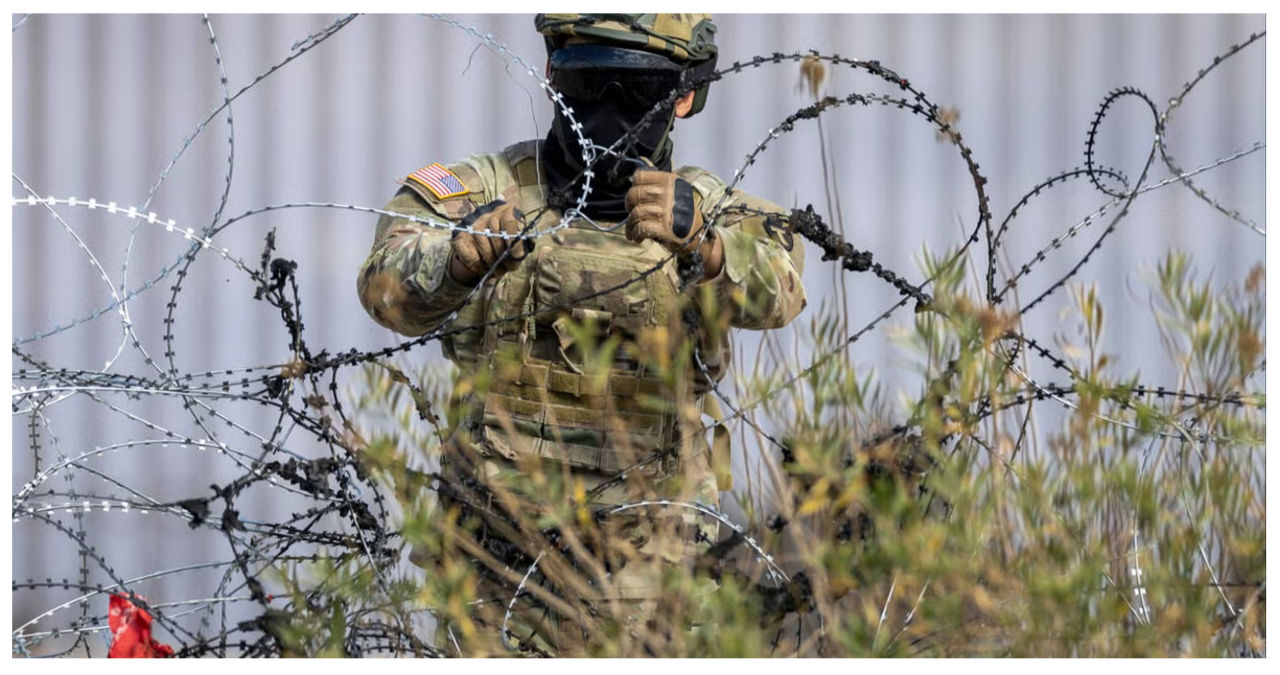The Supreme Court has given the go-ahead to a contentious immigration law in Texas, enabling local law enforcement officials to apprehend individuals who are illegally crossing the US-Mexico border.
The court has rejected the Biden administration’s emergency request, with a 6-3 decision, just a day after ordering the law, SB4, to remain paused.
The law is now allowed to take effect even as it faces ongoing legal challenges in lower courts. Although it has been granted permission for the time being, there is a possibility that it may be halted in the future.
The conservative majority of the court did not provide a reason for denying the stay. Justices Amy Coney Barrett and Brett Kavanaugh, in a concurring opinion, pointed out that the Fifth Circuit Court of Appeals had not yet made a decision.
Justice Barrett expressed concern that if a decision is not made in a timely manner, the applicants may have to bring the case back to the court.
In dissent, Justice Sonia Sotomayor expressed her concerns about the decision, stating that it could lead to more chaos and crisis in immigration enforcement.
Under SB4, individuals who cross the US-Mexico border illegally will be committing a crime. Law enforcement will have the power to charge them with a Class B misdemeanor, which could result in a maximum sentence of six months in jail. For second offenders, the penalties become even more severe, as they may face second-degree felony charges and up to 20 years in prison.
Texas Governor Greg Abbott has achieved a significant victory with the temporary decision, as he has been actively advocating for robust legislation to prevent migrants from crossing the border and implementing penalties to deter such actions.
In December, Mr. Abbott signed the bill, which was scheduled to take effect earlier this month. However, both the Justice Department and immigration advocacy groups filed petitions in federal courts, seeking to halt the implementation of the law temporarily. Despite these efforts, the Fifth Circuit allowed the law to proceed while the litigation continues.
Earlier this month and last week, the Biden administration requested the Supreme Court to halt the law, which it subsequently did.
However, the conservative majority decided to postpone issuing a formal ruling or opinion on the emergency order until the Fifth Circuit did.
Justice Sotomayor expressed her disagreement with the conservative justices’ choice to wait for the Fifth Circuit’s decision before taking action.
Justice Sotomayor wrote that while the Court does not take a stance on the constitutionality of Texas’s law and defers to a lower court’s management of its docket, the Court of Appeals made an error in judgment by imposing an unspecified and arbitrary administrative stay that disrupted the existing state of affairs.
Texas argued that it had the authority to defend itself under Article I, Section 10 of the Constitution, which grants states the right to engage in war if they are “actually invaded.”
According to the Justice Department, the bill is in conflict with federal law, which is usually responsible for immigration enforcement.
Adriana Piñon, the legal director at the ACLU of Texas, expressed her disagreement with the court’s decision and expressed concerns about the implementation of this unconstitutional and extreme anti-immigrant law. She believes that SB4 poses a significant threat to the basic civil and human rights of both citizens and non-citizens in Texas. Piñon strongly advises anyone who feels threatened by this law, including those who fear racial profiling, to be aware of their rights. The ACLU of Texas is committed to ongoing efforts to stop the enforcement of this discriminatory legislation.



